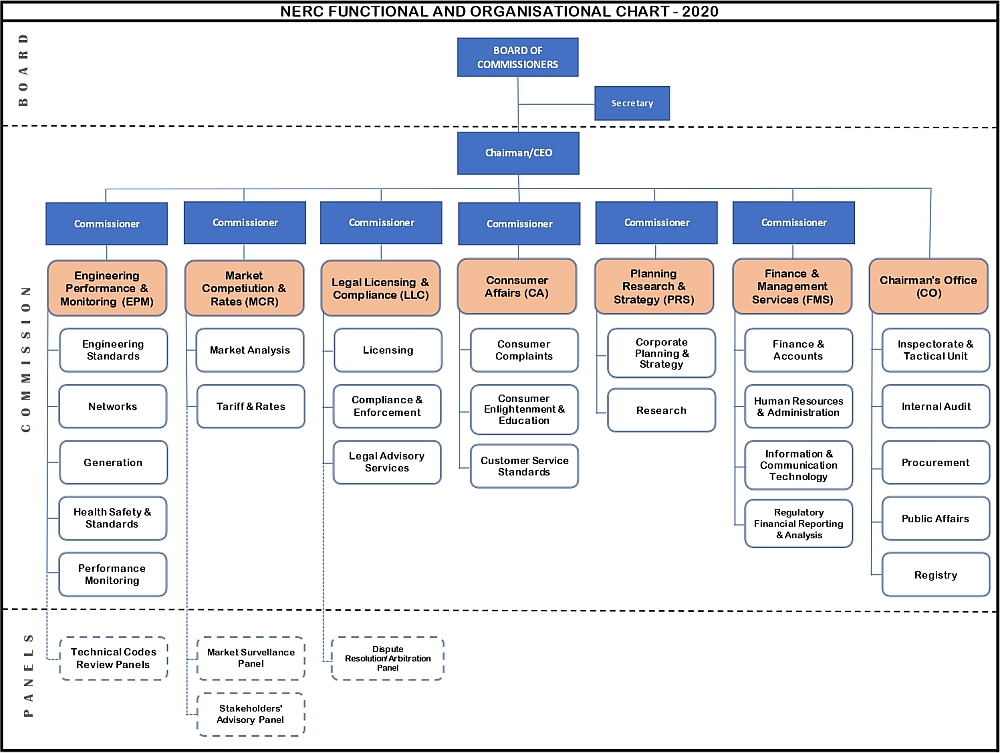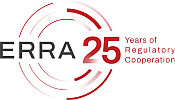Nigerian Electricity Regulatory Commission (NERC)
Nigerian Electricity Regulatory Commission (NERC)

Nigeria
Sectors Regulated:
Electricity
- Plot 1387, Cadastral Zone A00 Central Business District, Abuja, FCT, Nigeria
- +234 09 462 1400
- info-at-nerc.gov.ng
- www.nerc.gov.ng
Regulatory Authority General Information
- Joined ERRA in 2010 (became Full Member in 2016)
- Established in 2005
Responsibilities
- Legal basis/ mandate
- Electric Power Sector Reform Act, 2005.
- Responsibilities
- The Commission issues operating lincences in the Nigerian Electricity Supply Industry (NESI), grant permits, approve tariffs, promote competition, establish and approve operating codes to ensure service standards, quality, and safety. The Commission establish consumers and rights and obligations, monitor operations of the electricity market, protect grid stability, and organize activities promoting the conservation of energy and renewable energy initiatives.
- Authorities
- • Independence: NERC is an independent utility regulatory institution.
- • Supervised by: The Federal Ministry of Power has the responsibilities for the industry’s policy guidelines and directives.
- • Reports to: President and National Assembly on quarterly basis and upon request.
- • Appeal process: Commission regulatory decisions can be appealed only at the courts on issues of law and due process.
Organisational Structure
- Organigram

- Internal Structure
- The Commission has a board of seven (7) Commissioners, one of whom is designated as the Chairman/Chief Executive Officer. They are nominated by the President and ratified by the Senate (Upper House of the National Assembly). The Commissioners work on full time basis. The appointment is for the initial term of five years that is renewable for the second and final term of another five years.
- Working Employees
- • Decision-Making Level: The Chairman/CEO takes responsibilities as the accounting officer on activities of the Commission but decisions are taken in consultation with the other six (6) Commissioners. The Commission’s staff are engaged on full time basis.
- • Total Number of Employees: 149
- Budget
- Commission is funded by the electricity market through fees charged for the regulatory services provided for the electricity market.
Annual Report
Information will be available at a later stage.

